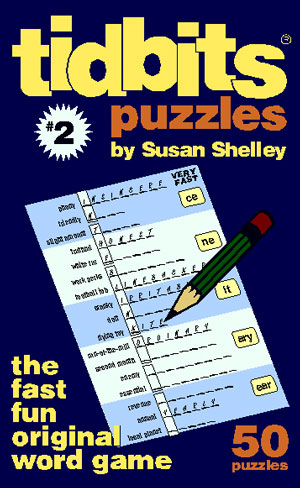Karma. It's so slow.
That favorite saying of a friend was brought to mind last week as we watched car dealers complain to Congress that they were getting screwed.
The lawmakers listened sympathetically but didn't offer much help. Apparently the Gallup Poll hasn't uncovered any public support for a bailout of car dealers, other than a few dollars to pay for a headstone inscribed, What Goes Around, Comes Around.
In another championship display of prevarication, President Barack Obama devoted his weekly Internet and radio address to an explanation of how he plans to pay for his health care reform proposals.
He plans to pay doctors, hospitals, and drug makers less than they charge for their products and services.
Why didn't we think of that.
The next time you go to the grocery store, tell the manager you're only paying fifty cents a pound for beef, and it had better be sirloin because it's discriminatory to reserve the good stuff for people who can pay more for it. When he laughs at you, tell him he'd better play ball unless he wants to see his supermarket nationalized and his salary cut to a dollar a year.
How many Army divisions does Kroger have?
President Obama must be in real trouble on this health care reform bill because he has already gone to the old, reliable Washington lie: he can find the money to pay for it by "rooting out waste."
He couldn't have picked a worse week to fire Gerald Walpin, the Inspector General of the Corporation for National and Community Service, who had the bad taste to root out $400,000 in waste in an AmeriCorps program run by Sacramento Mayor Kevin Johnson, an Obama ally and former NBA star.
There's no inspector general in the NBA, which might explain why commissioner David Stern gets away with what looks like the biggest rigging scandal since black-and-white quiz shows.
America Wants To Know became convinced last week that the cat is out of the bag when we heard the women at the hair salon chatting about the Lakers' loss in Game 3 of the NBA Finals, and how everybody knew that "they" weren't going to let the Lakers win four straight games because it would be boring and the ratings would tank.
We always get e-mail from friends who enjoy sports betting whenever there is an egregious call or non-call by an official, like the one in the Mavericks-Nuggets Western Conference Semifinals game on May 9, and whenever a player inexplicably shoots or doesn't shoot an uncontested basket at the end of the game that affects the point spread or the over-under.
This week someone sent us the news story about former NBA referee Tim Donaghy, presently serving a 15-month sentence for conspiracy and wire fraud in connection with sports gambling, being clubbed in the knee by an inmate who claimed to have ties to the New York mob. "Verbally, there was a comment made that they were going to shoot him in the head and break his knee caps," reported Donaghy's representative.
Donaghy, who is scheduled for release on October 24, is said to be writing a tell-all book on "how he picked those winners 70 to 80 percent of the time and about the knowledge of the special relationships that exist between referees, players and coaches."
Donaghy's representative, Pat Zaranek of Executive Prison Consultants, said the former ref's gambling problem should be seen in context. "To understand his addiction, what transpired, you have to understand what led up to it during his 13 years in pro basketball and the whole culture of what he perceived as fraud and manipulation in the NBA," he said.
If NBA commissioner David Stern is rigging the outcome of games, it appears that he's doing it with a sophisticated system of manipulating the officiating to get key players in foul trouble early and at the foul line late.
That would explain the peculiar sequence of events involving Lakers head coach Phil Jackson in Game 4 of the NBA Finals. Jackson gave an interview between the first and second quarters of the game and said there were some "bogus" calls in the first quarter that resulted in two fouls each for the Lakers' Pau Gasol, Lamar Odom and Andrew Bynum.
The NBA fined Phil Jackson $25,000 for that comment. An additional $25,000 fine was assessed against the Lakers organization.
The league had already fined Jackson for comments about the officiating of a playoff game the Lakers lost to the Denver Nuggets, in which the Nuggets shot 49 free throws and the Lakers just 35. "We want the game to be fair and evenly played," Jackson said.
That cost him $25,000.
A reasonable person might think Coach Jackson makes these expensive public statements to let David Stern know that he knows, and that there is a limit to how much he'll play along with it.
Or it all could be theater to make it look good for the fans at home. Maybe everybody's in on it for the financial health of the sport.
In February, the NBA borrowed $175 million to help 15 struggling teams pay their bills. That's in addition to a "$1.7 billion league-wide credit facility," according to the New York Times. "The league uses its lucrative media contracts as collateral to secure loans for its clubs," the Times reported.
Lower ratings would mean less lucrative media contracts, which might lead to a disastrous financial meltdown of the whole wildly-leveraged operation.
That would explain it.
It would also explain this odd report in MediaPost.com last week. "As the NBA looks to get a better handle on its ratings, the league has reached a deal with TiVo to provide it with an analysis of viewing patterns based on second-by-second data," David Goetzl reported. "It's not just how many people watch, but information as to when viewers are likely to tune out during a blowout."
By coincidence, or maybe not by coincidence, Game 4 of the NBA Finals was very close after three key Laker players picked up two fouls each in the first quarter. The game was tied at the end of regulation and the Lakers edged out an overtime victory over the Orlando Magic, one of the teams that needed $10 million of that emergency loan in February.
"After the Game 1 blowout, what a thrilling series this has become," the ABC announcer remarked.
He was not fined by the league for that comment.
Copyright 2009
Editor's note: You might be interested in the earlier posts, "NBA Fines and Finals," "NBA Commissioner caught cheating," and "Pete Rose: Yes I did."
.
















